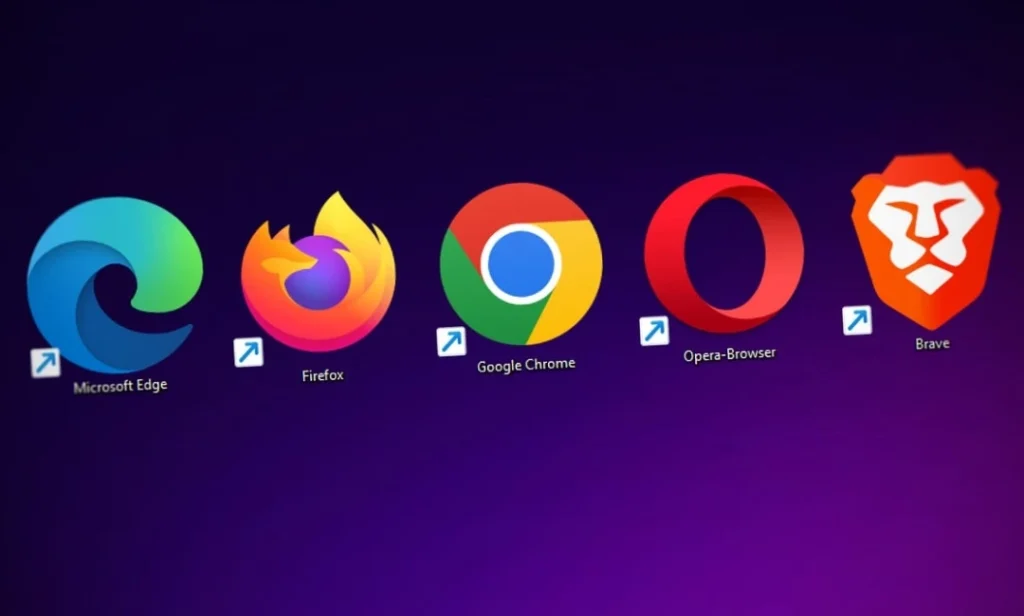When it comes to the Linux platform, one can be rendered confused when it comes to selecting the right browser to use, considering that there are many to choose. There are some that are fast, and some that concern privacy, and few are some that are lightweight systems. When it comes to Linux, whether you are at work with a browser doing the internet surfing, school or even browsing. The type of browser you use can make a world of a difference.
This guide will help you find the best browser for Linux based on what matters most to you: speed, security, or features. It is designed to be used by Linux users of any category, either you are new in the system or have had years of experience.
It is easy to see uncomplicated explanations, actual comparisons, and vivid motives why each of the browsers could be the one. We’ll also look at some of the top web browsers for Linux in 2025 and help you decide which one fits your style.
What to Look for in a Linux Browser?
Browsers are not created equal and what is best in Windows or Mac will not necessarily work in Linux. When choosing the best internet browser for Linux, it helps to focus on a few key things that make your experience better.
One of the most important is the speed. In case a browser loads pages too slowly or locks when one opens too many tabs, it won’t be pleasant to use. A blazing-fast web experience under Linux can even cause your older hardware to seem smoother.
The other thing to consider is privacy. Others prevent trackers, ads and other garbage scripts by default. Do that concern you? There is an alternative: a privacy-focused browser in Linux that puts you in more control on who can have knowledge about your information.
The big difference also has to do with extension support. In case you use password managers, ad blockers, or web tools, it is necessary to choose a Linux browser that can have extensions. Open source browsers such as Firefox provide utility in wide extension support, though most other Chromium-based browsers provide the same capability.
To users of lighter systems, the fastest and the smallest are the most important. In that case, go with a lightweight browser for Linux that runs well without draining memory or battery. And even Linux browsers with the low synchro loads are available, which are designed to operate on older models.
Suggestion: Twitch Text Verification Made Easy with These Free Sites
It is also necessary to see the ease of browser installation and update. Your Linux distro can have some browsers installed in its software center and other browsers you can be required to fetch them at the developer site. In case you do not know where to start we will also mention how to install browsers on Linux further on in this guide.
Lastly, consider how you will be using it. Do you merely surf the web and in need of code or trial web toolmals? Dev tools and adaptable characteristics are inbuilt in some of the best web-dev browsers in Linux.
Having an idea of what to look at, it is time to review the best options we have and compare them.
Top Web Browsers for Linux
Linux has lots of browsers, but they do not provide you with the same experience. There are those that emphasize privacy and others that are configured to be speedy or to be customizable. Below is a simple comparison to help you choose the top web browsers for Linux in 2025 based on what you need most.
| Browser | Best For | Why It Stands Out |
| Firefox | Everyday use and privacy | Open-source, strong security, runs well on most Linux systems |
| Brave | Privacy-focused users | Blocks ads and trackers by default, fast and clean |
| Chromium | Google-free Chrome feel | Lightweight, supports Chrome extensions, open source |
| Vivaldi | Customization and power users | Flexible interface, built-in tools like notes and tab tiling |
| GNOME Web | Lightweight desktop use | Very simple, low memory use, fits GNOME desktop nicely |
| Opera | Built-in features | Comes with VPN, sidebar messengers, battery saver |
| Tor Browser | Anonymous browsing | Uses the Tor network, hides your IP and blocks tracking |
| Google Chrome | Users in Google ecosystem | Easy to sync with Gmail, Drive, and other services |
The vast majority of them perform effectively on famous Linux distributions, such as Ubuntu, Linux Mint, Fedora, and Debian. To offer an example, Firefox and Brave browsers tend to be selected as the most suitable to use with Linux Mint and Ubuntu because they are fast, have good privacy and effortless use.
You May Also Like: Why Should I Not Share Sensitive Content? Risks Explained.
Firefox and Chromium are great options in case you need the open-source browsers on Linux. Chromium-based browsers such as Brave, Vivaldi and Opera, which work on Linux, will allow people who use Chrome to retain the same basic structure but without the same set of features.
Every browser has some merits, so the best browser is that which depends on what is important to you between speed, privacy, customization and simplicity.
Best Lightweight Browsers for Linux

All Linux systems are not using high end hardware. In case you have an older PC, a low-cfg laptop, or a lightweight distribution such as Lubuntu or Xubuntu, it would be wise to select a browser that would not consume so many resources. A lightweight browser for Linux can give you faster load times and smoother performance, even on systems with limited RAM or CPU power.
These browsers are easygoing and effective browsers. They are not endowed with superfluous functions and shiny features but do what they are supposed to do, and they do them well, at least in web usage, email and general purpose.
These are some of the choices that can play well on systems with low system resource consumptions:
- GNOME Web (Pronounced epiphany), a straightforward web browser created on the GNOME desktop. It is quick to install, convenient, and definitely native in thin Linux applications.
- Midori is a minimal and clean browser, which boots fast and is perfect to accomplish simple tasks in the web. It consumes minimal memory and yet accommodates the current web standards.
- Falkon is made using the same engine as Chromium however performance-reduced. It does not take much to install and can run on virtually all (most) distributions of Linux without becoming a load.
These options are worth your consideration, especially when you want a quicker browsing experience using Linux on older hardware. They do not provide the number of extensions/tools as the fully featured browsers, Firefox or Chrome but when it comes to fulfilling basic requirement, they are more than sufficient.
Next, we are going to consider the best browsers of those, who are most concerned about privacy and security.
Best Privacy Browsers for Linux
Besides, in case your primary interest is privacy, Linux is already giving you a good head start. However, your web browser is a great determinant when it comes to the level of data privacy that your data will have in the internet. Other browsers gather fewer data, provide tracker blockers as well as halt advertisements that follow you. This section is meant to you in case you want the most secure browser in Linux.
Brave is among the leading in privacy. It also helms down advertisements and trackers by default, and websites are unable to monitor your movements. It runs on a version of Chromium, so it actually looks familiar to you if you ever used Chrome, but it is packaged in such a way that it fits into the category of a user who is confident in this which is confined to speed and protection without having to have a myriad of setting panel.
Also Check: Rachel Tobac Ebook vs Other Ethical Hacking Guides in the U.S.
Another, Firefox is a good alternative. It is open-source, and it is also highly conscious of the user privacy. It is possible to switch on Enhanced Tracking Protection, deny the use of third-party cookies, and use the so-called private browsing that is really meaningful. Firefox has also got large number of privacy extensions in case you desire to have even more control.
To be on the safe side, no one can argue against Tor Browser when it comes to the highest privacy. It transfers your connection via the Tor network so that people might not follow you due to masking of your location. It is not the quickest and not all the sites work well but when one wants to have an anonymous connection, it is the best one.
All these three browsers perform excellently on Linux and provide various degrees of privacy in regard to what you require. Great question marks aside, Brave is excellent when you need something quick and incognito off the shelf. Fire Fox is the one for you when you like to put settings according to your wish. Tor is suitable to users that seek overall anonymity.
After that we will consider browsers that developers and the technically inclined users should use on Linux.
Best Browsers for Developers

You may write code, build websites, or manipulate web tools on Linux: your browser is only one of your working tabs. The most suitable browsers on Linux that allow you to develop the best web tools include inspection, live reload, debugging, and performance tracking and they will not slow you.
One of the best is Firefox Developer Edition. It is a developer firefox with special features just for developers. It also includes high-level features, such as CSS grid inspector, JavaScript debugging tool, and network monitor, all included. It also fits into the Linux way of thinking since it is open-source.
Another good alternative is chromium. As it is the foundation of Chrome, Brave, and other Chromium-based web browsers on Linux it is more than enough a platform that should be used on testing a web site which is supposed to be operational on numerous environments. It contains all the Chrome extensions and contains stable dev tools with layout, console logs, and site performance.
The smaller choice is Vivaldi, which is an absolute favourite among power users. It is versatile and it is full of features such as split-screen tabs, custom UI schemes as well as in-built notes, which are handy in multitasking and testing of the device.
All these browsers have the main features interested developers: open standards, editing in real-time or good extensibility. You should give them a shot when you are doing front end code, constructing toolkits or testing designs.
In the next step we are going to assist you in selecting the best browser to use overall on your Linux installation, on the basis of your needs.
Which Browser Is Best on Linux?
No single browser is ideal to all. Your priority will determine the most appropriate choice. There are those people that are in need of speed and the issue of privacy matters more to some and to some they only require something that works without installations.
Firefox is a good alternative when you want a well-rounded, balanced distribution. It is very easy in use, does not compromise your privacy and functions fine with most versions of Linux. For many users, it’s still one of the best web browsers for Linux in 2025.
Brave and Tor Browser are also good alternatives when you consider privacy as your main priority. Brave provides you with excellent protection, but it does not come at the cost of speed, whereas Tor is designed to anonymize everything, but it works slower on a daily basis.
A user that requires a rapid, clean interface with a good supporting extensions, will find both Chromium and Google Chrome reliable. They are also beneficial to the people who use other Google services.
GNOME Web, Midori, or Falkon could be preferred alternatives in case you have an older computer, or are running a lightweight desktop. These are some other browsers, which are not very demanding on the memory of Linux users and nevertheless can cope with the contemporary Internet sites.
Vivaldi or the Firefox developer edition provides more features and choice without making the jump to other platforms, which are available to those developers or power users who prefer the option.
The only best browser is the one of those that suits your needs. You may have to experiment with one or two before you get to find the one that suits your system.
Frequently Asked Questions
Which browser is best on Linux for speed and performance?
Chromium and Brave are great choices in case speed is your number one priority. They are both fast and responsive when it comes to pages and tab management. In case of low-end systems, a good lightweight alternative to Google Chrome is GNOME Web or Midori which are also smooth at performance.
Is Firefox better than Chrome on Linux?
It is such a thing as depends on what you care about. Firefox utilizes the least number of Google services and gives robust privacy options as default. Chrome may be a bit faster on other systems and more convenient when you want to keep in sync with your Google account. They are both reliable and perform good on Linus.
Can I use Microsoft Edge on Linux?
Yes, Microsoft Edge can run in Linux. It is developed on Chromium, and hence it has a close resemblance to Chrome. It is extension-friendly, it runs well, and it can be the right choice in case you are accustomed to using Edge in Windows. Nevertheless, a lot of users of Linux choose to use open-source browsers.
Which browser uses the least memory on Linux?
GNOME Web and Midori are well renowned as requiring extremely limited system memory. These browsers are lightweight and straightforward in nature hence a smarter option when one has an old computer or needs simple browsing activities.
Are Linux browsers more secure than on Windows?
The browsers are relatively similar in their core, but due to the app handling and permissions approach implemented by the system, Linux is even more secure. Linux when compared with privacy browsers e.g. Brave, Firefox, or Tor, can provide a much more secure experience of browsing in general.
Final Thoughts
Linux allows full choice in the devices that you have and your browser is no exception. Either you desire something quick, discreet, easy peasy or just power-packed, you will not fall short of good choices. From Firefox and Brave to lightweight picks like GNOME Web or developer favorites like Vivaldi, the top web browsers for Linux serve different needs.
There’s no one-size-fits-all answer to the question, “Which browser is best on Linux?” There is no better way to make a decision than to test out one or two of them, which correspond to what you are most concerned about speed, security, or customization.
No matter which option you choose, the best browser for Linux is the one that fits your setup, runs smoothly, and helps you get things done.





